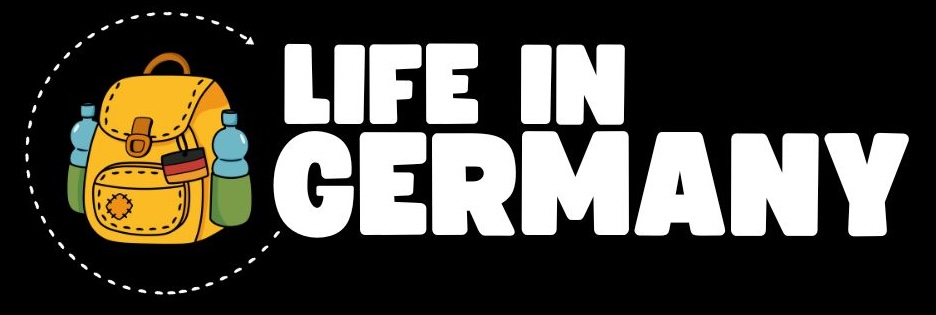The most hilarious animal sounds in German to me compared to those in English show just how quirky language is! Language is a fascinating thing, especially when it comes to how different cultures interpret the sounds that animals make.
MOST HILARIOUS ANIMAL SOUNDS IN GERMAN: A Fun Exploration 🐾
- 1. The Dog: Woof vs. Vov Vov 🐶
- 2. The Cat: Meow or Meow? 🐱
- 3. The Mouse: Squeak vs. Piep Piep 🐭
- 4. The Frog: Ribbit or Quack? 🐸
- 5. The Rooster: Cock-a-doodle-doo vs. Kikiriki 🐔
- 6. The Owl: Hoot Hoot vs. Uhu Uhu 🦉
- 7. The Cow: Moo vs. Muh 🐄
- 8. The Duck: Quack vs. Quak 🦆
- 9. The Sheep: Baa vs. Mäh 🐑
- 10. The Pig: Oink vs. Oink or Grunz 🐖
- 11. The Horse: Neigh vs. Wiehern 🐴
- 12. The Donkey: Hee-Haw vs. I-Ah 🐴
- 13. The Conclusion: Embracing Language Diversity 🌍
1. The Dog: Woof vs. Vov Vov 🐶
When it comes to dogs, the sound they make is universally recognized, but the representation varies dramatically. In English, we say “woof woof,” while in German, it’s “vov vov.” This might seem trivial, but it reflects how cultures interpret animal sounds differently. It’s amusing to think that a simple bark can sound completely different based on the language!
2. The Cat: Meow or Meow? 🐱
Cats are another example where the sound remains the same across languages. Both English and German use “meow” to describe the sound a cat makes. However, the German spelling is slightly different, using “m-e-o-w.” It’s fascinating how some sounds transcend language barriers, making them a shared experience among cultures.
3. The Mouse: Squeak vs. Piep Piep 🐭
The sound of a mouse is often depicted as “squeak” in English, which conveys the high-pitched noise they make. In German, however, it’s represented as “piep piep.” While both terms evoke the same idea, it’s interesting to see how languages adapt animal sounds to fit their phonetic structures.
4. The Frog: Ribbit or Quack? 🐸
One of the most hilarious differences comes from frogs. In English, a frog goes “ribbit,” but in German, it’s quite a shocker: frogs go “quack.” This is not only amusing but also perplexing. How did a creature that is known for its ribbiting sound end up with a quack in another language? It surely raises eyebrows and laughter!
5. The Rooster: Cock-a-doodle-doo vs. Kikiriki 🐔
The rooster’s crow is iconic, yet its representation in different languages is a source of great humor. In English, we all know it as “cock-a-doodle-doo,” while in German, it’s referred to as “kikiriki.” The sheer contrast between these two phrases is a perfect example of how language can create unique cultural identities. It’s certainly a fun topic to discuss in bilingual circles!
6. The Owl: Hoot Hoot vs. Uhu Uhu 🦉
Owls are often associated with wisdom and mystery. In English, we say “hoot hoot” for their call, while in German it’s “uhu uhu.” This slight variation adds a layer of charm to the owl’s reputation, showing how different cultures perceive these majestic birds.
7. The Cow: Moo vs. Muh 🐄
What about cows? In English, they “moo,” but in German, they “muh.” This is another example where the sounds are similar yet distinct. The way each language approaches the sound of a cow is delightful, emphasizing how language can play with sounds in unique ways.
8. The Duck: Quack vs. Quak 🦆
Ducks are universally recognized for their quacking, but again, there’s a twist. In English, we say “quack,” while in German it’s “quak.” The simplicity of the sounds belies the rich cultural contexts they inhabit. It’s a fun conversation starter among language enthusiasts!
9. The Sheep: Baa vs. Mäh 🐑
Sheep are known for their distinct bleating. In English, we say “baa,” while in German, it’s “mäh.” The transformation of sounds from one language to another is a beautiful reminder of the diversity in our world, and it sparks joy in conversations about language learning.
10. The Pig: Oink vs. Oink or Grunz 🐖
Pigs are often associated with a playful oink in English. Interestingly, the German language also uses “oink,” but it has an alternative: “grunz.” This duality shows how some sounds can have multiple representations, making language learning an intricate puzzle.
11. The Horse: Neigh vs. Wiehern 🐴
Horses are majestic creatures, and their sounds reflect their grace. In English, they “neigh,” while in German, it’s “wiehern.” This showcases how different languages can encapsulate the essence of an animal through their sounds, offering a sense of personality to each creature.
12. The Donkey: Hee-Haw vs. I-Ah 🐴
Donkeys are known for their characteristic braying. In English, it’s “hee-haw,” while in German, it’s “i-ah.” This delightful contrast adds a layer of humor to discussions about animal sounds, particularly when shared among bilingual families.
13. Animal Sounds in German: Embracing Language Diversity 🌍
Exploring the funny animal sounds in german compared to English showcases the beauty of linguistic diversity. Whether you are learning German or simply curious about the quirks of different cultures, these animal sounds are a fun way to engage with the language. So the next time you hear a dog barking or a rooster crowing, remember the delightful differences you get to experience as an expat learning a new language!
Made with VideoToBlog

